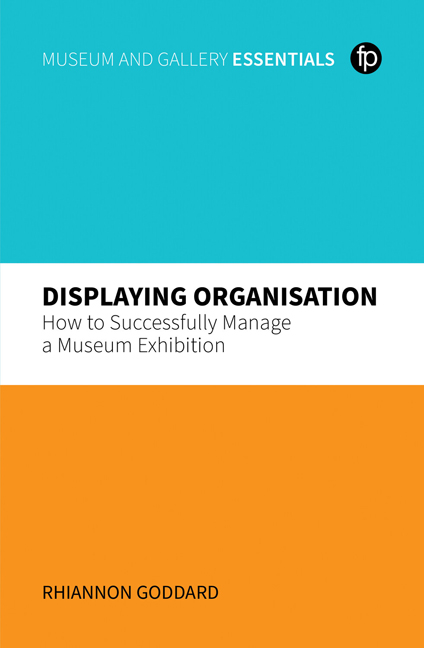Book contents
- Frontmatter
- Dedication
- Contents
- Figures, Tables, Boxes and Case Studies
- About the Author
- Acknowledgements
- Introduction
- PART 1 DEFINING THE PROJECT
- PART 2 PLANNING THE PROJECT
- PART 3 EXECUTING THE PROJECT
- PART 4 TRANSITION
- PART 5 EVALUATING THE PROJECT
- PART 6 KEY PROJECT MANAGEMENT SKILLS
- Bibliography
- Index
- Frontmatter
- Dedication
- Contents
- Figures, Tables, Boxes and Case Studies
- About the Author
- Acknowledgements
- Introduction
- PART 1 DEFINING THE PROJECT
- PART 2 PLANNING THE PROJECT
- PART 3 EXECUTING THE PROJECT
- PART 4 TRANSITION
- PART 5 EVALUATING THE PROJECT
- PART 6 KEY PROJECT MANAGEMENT SKILLS
- Bibliography
- Index
Summary
This book grew out of my years of experience of running varied projects, not all of them exhibitions at Historic Royal Palaces, where I have been based since 2008. Before this, I worked as the Interpretation Manager at the British Museum, and even further back as a Museum Development Officer in the south-west of the UK. My experience has been varied, seeing museums of all sizes and types develop innovative exhibitions and put on excellent displays. As well as understanding the theory of project management, I urge you to get to know the sector you have chosen. Go to as many exhibitions as you can and learn from them what works and what doesn't work for the visitor; talk to the staff involved in putting them together and those involved in their operation, and learn from their experience. Being a good project manager (PM) can be learned through theory, but being a great one takes a passion for the sector and a deep and thorough understanding of how people react to pressure, deadlines and the fast pace of project implementation. On each project I am part of I learn something new about myself and about the process of successfully seeing a project through to completion. I hope this book helps you on your journey and I wish you success in achieving the satisfaction that comes from seeing a project successfully completed.
In the following chapters you will learn all about the skills and techniques you need to be a successful PM. Being able to manage projects is an essential skill for working in the museum and heritage industry. Although these skills aren't always formally taught on heritage management courses or required in job descriptions, they are in use by museum staff every day. All exhibitions are projects; moving a collection to a new store is a project; carrying out research for a book and writing it is a project. But often these tasks aren't described as projects, or perhaps your museum isn't familiar with the process of project management and therefore the steps taken to plan an exhibition successfully aren't formalised. Most people have to pick up these skills by trial and error.
- Type
- Chapter
- Information
- Displaying OrganisationHow to Successfully Manage a Museum Exhibition, pp. xix - xxivPublisher: FacetPrint publication year: 2023

